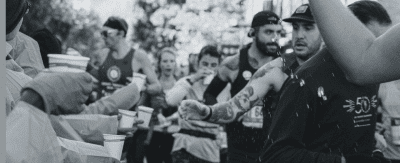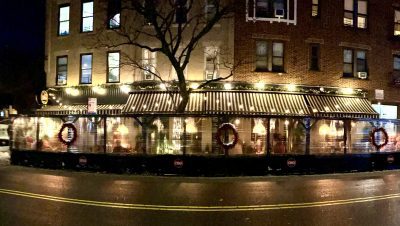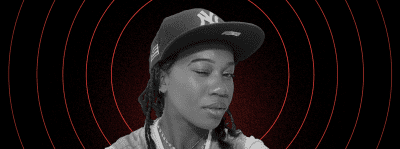Rev.Grzegorz Markulak (center) and Kasia Drucker (left) ride the Dyngus Day float (Photo by Stephanie Keith)
‘Everyone is Polish on Dyngus Day’: Scenes from Greenpoint on Easter Monday
The neighborhood’s Polish community gathered to celebrate an old world tradition at the third annual Dyngus Day Parade
A float with red and white balloons, children blasting water guns and adults hoisting pussy willows heralded the start of the third annual Dyngus Day parade outside of the St. Stanislaus Kostka Church in Greenpoint Monday.
For years on the Monday after Easter, residents of Little Poland have celebrated Smigus-dyngus, also known as Wet Monday, though an official parade wasn’t officially launched here until 2022. With origins that have been documented as early as the 14th century and may stretch back to first century AD pagan rituals, Dyngus Day’s roots are most likely related to spring rites. In more modern times, boys would historically throw water at girls and tap them with pussy willows, though these days, it goes both ways. They get together to march, splash each other and, at least in Brooklyn, sing original tunes like “What Da Heck is Dyngus Day” and “We Love Dyngus Day.”
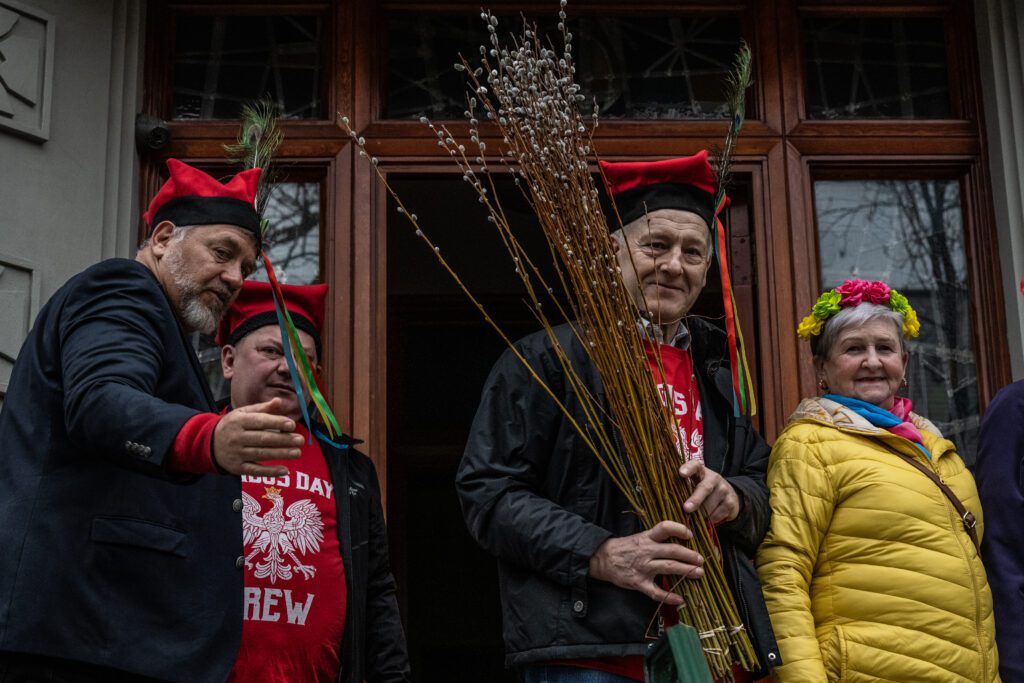
People exit the St. Stanislaus Kostka Church with bunches of pussy willows (Photo by Stephanie Keith)
Here’s how one of the parade’s (thoroughly un-factchecked) founders put it: “This is also the celebration of the beginning of spring time but the real reason was because of a prince in the year 960 who is chosen to become the next king of Poland,” said David Allan Jaymes, a 63-year-old second generation Brooklynite with Polish roots. “He wanted to bring the Catholic faith into Poland and he had to wait until the Monday after Easter to use holy water to be baptized because there’s no holy water during Lent.”
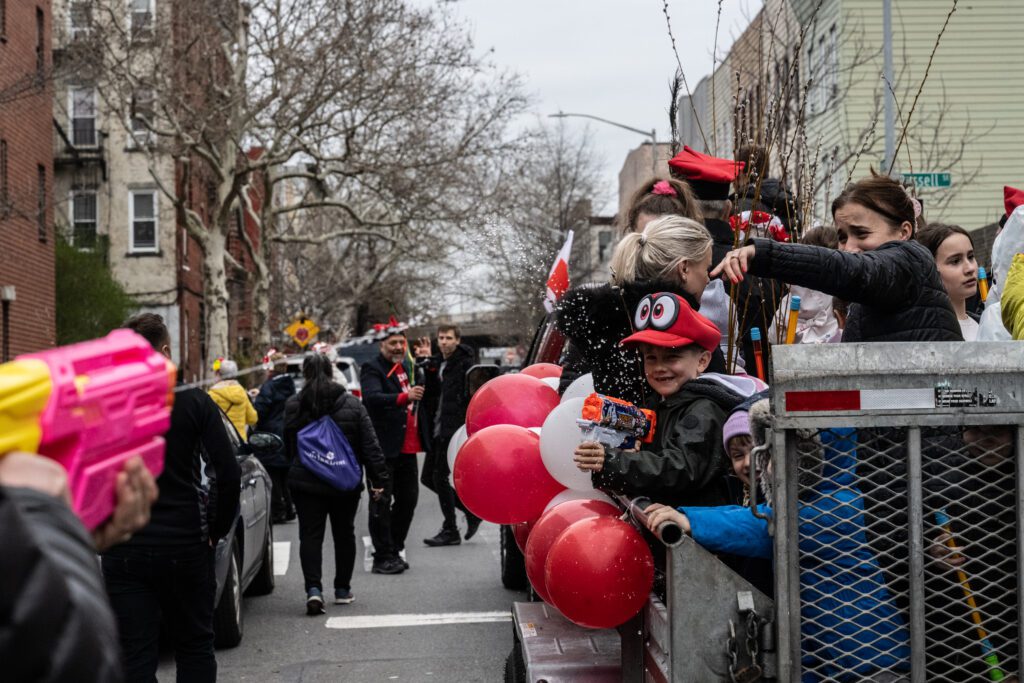

People squirt water at each other as a parade float winds its way through Greenpoint (Photo by Stephanie Keith)
As for the pussy willows: According to one ancient legend baby kittens fell into a river while chasing butterflies many springs ago. The mother cat wept at the river’s edge, mournful cries that the willows heard. They swept their long graceful branches into the water, allowing the kittens to climb up their branches. Every subsequent spring, the willows sprouted fur-like buds where the wee kittens once clung.
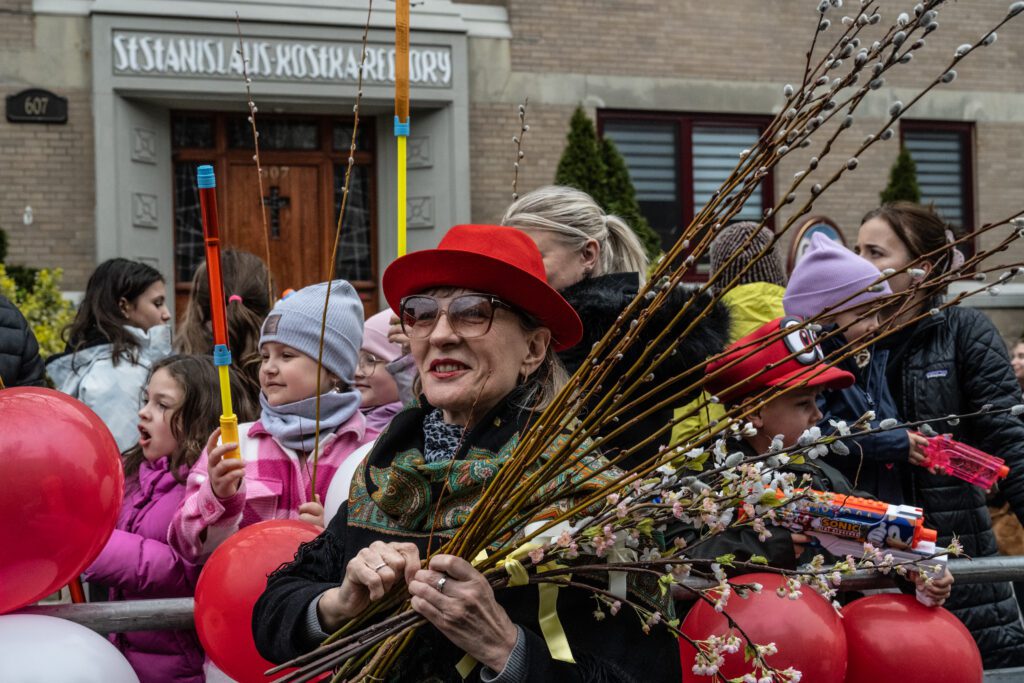

Danuta Bronchard with a bunch of Spring flower and pussy willows (photo by Stephanie Keith)
Several U.S. cities with large Polish populations go dingy for Dyngus Day, most notably Buffalo, which attracts thousands of people and many well-known polka bands to their parade. Greenpoint’s three-year-old Dyngus Day parade is the brainchild of three locals with ties to the St. Stanislaus Kostka Church: Jaymes, Kasia Drucker 55, an opera singer and local educator, and Grzegorz Markulak, 52, a priest.
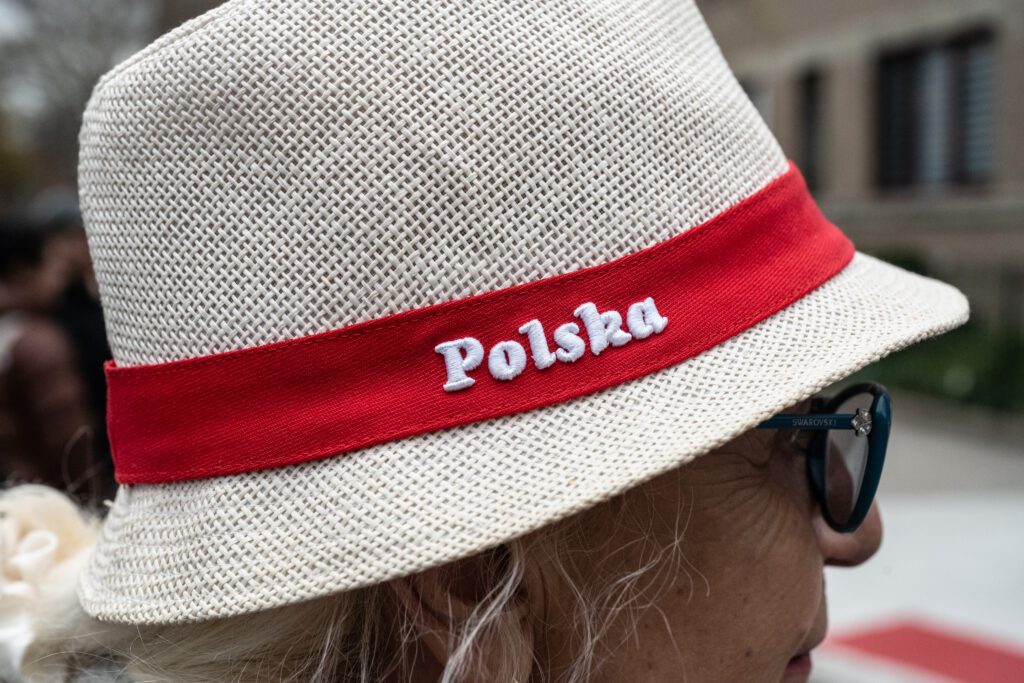

Photo by Stephanie Keith
“We came with the idea to create Dyngus songs,” said Drucker. “We wrote the new song, which is called ‘It’s Dyngus Day.’ We recorded the song with the children from the school and we said originally it should be played in Buffalo but, we say, why not do the parade here in the Greenpoint when all the Polish people are coming here, the immigrants and everything? So we connected with the father Gregory and we did the first parade then second parade and now it’s the third parade so it’s beautiful and more people are joining.”


Kielbasa for purchase in Msgr. McGolrick Park (Photo by Stephanie Keith)
As the parade, which consisted of a single float and about 100 people, wound its way through the streets of Greenpoint, more and more people — hearing the siren polka sounds of “Everyone is Polish on Dyngus Day” and other traditional Polish ditties — joined the procession. When the parade arrived in Msgr. McGolrick Park, it was met with a long table of traditional food, cotton candy for the children and an FDNY truck that doused the entire crowd of excited children in their best raincoats with, as Jaymes described it, “A billion droplets of holy water.”
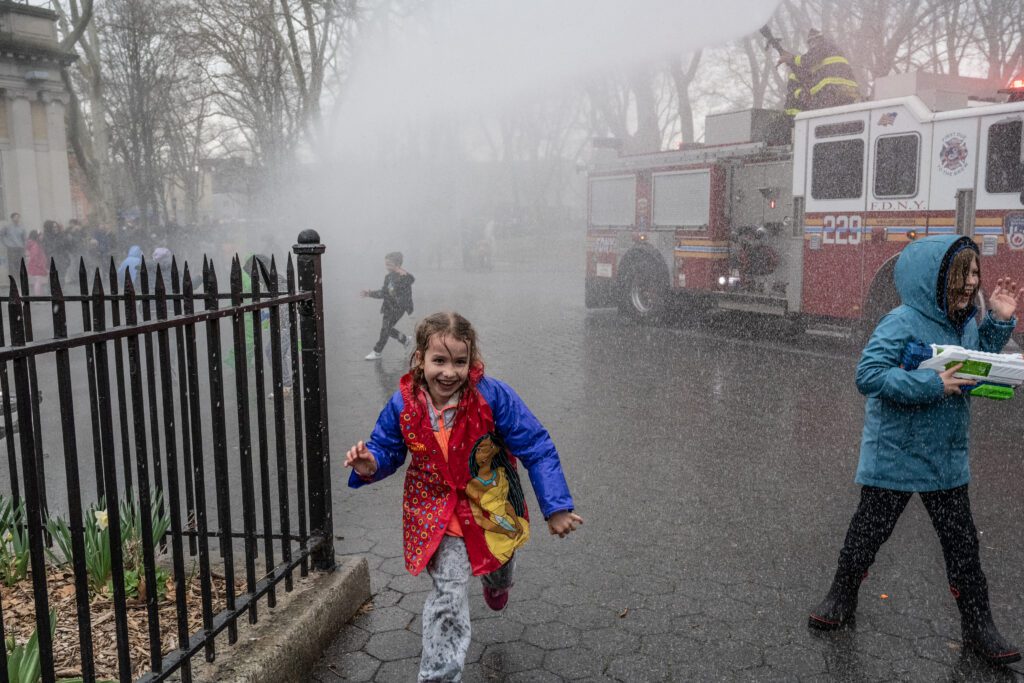

The D in FDNY stands for ‘Dyngus’ (Photo by Stephanie Keith)
Teenagers also got into the action, staging an elaborate water fight (or mating ritual, whichever way you want to see it), filling up Supersoakers and fighting in packs.
“Every year people come from all over the neighborhood to attack and get attacked” with water, said 14-year-old Maya Borkowska. “It’s like World War III here, a deep battle with Poland and Italy, boys versus the girls.”
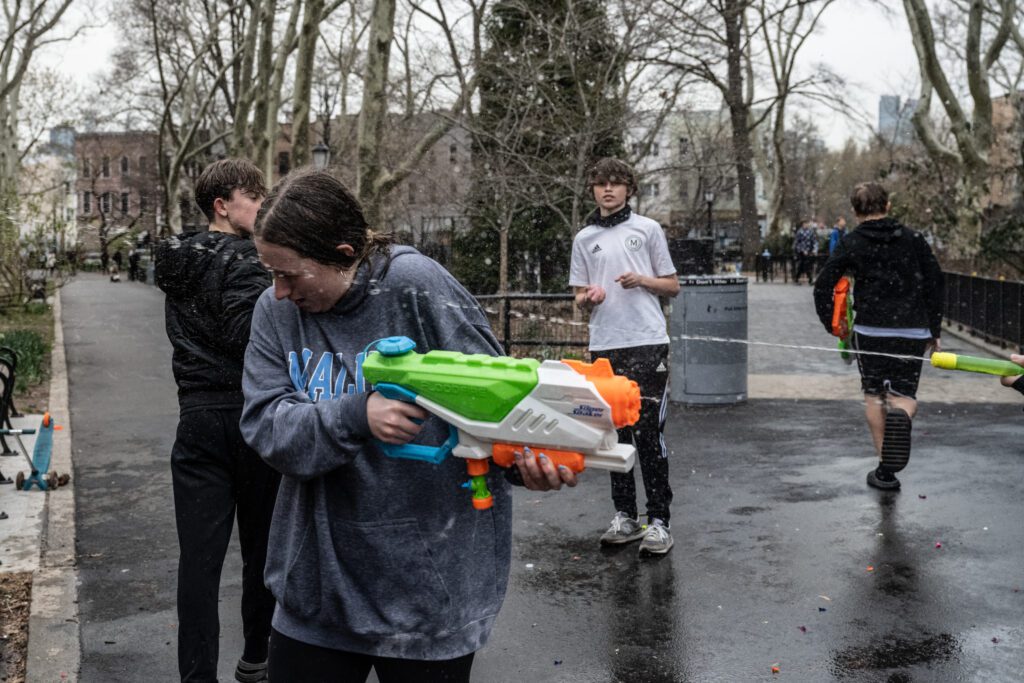

Supersoaked in McGolrick Park (Photo by Stephanie Keith)
For others, Dyngus Day is less about soggy courtship than it is about retaining a communal identity.
“Polish traditions are becoming less prevalent because of gentrification,” said Lukasz Oleszczak, one of the parade’s DJs. “In my opinion this is why we need to keep these traditions alive in our community and I hope the young kids understand what these days are all about.”
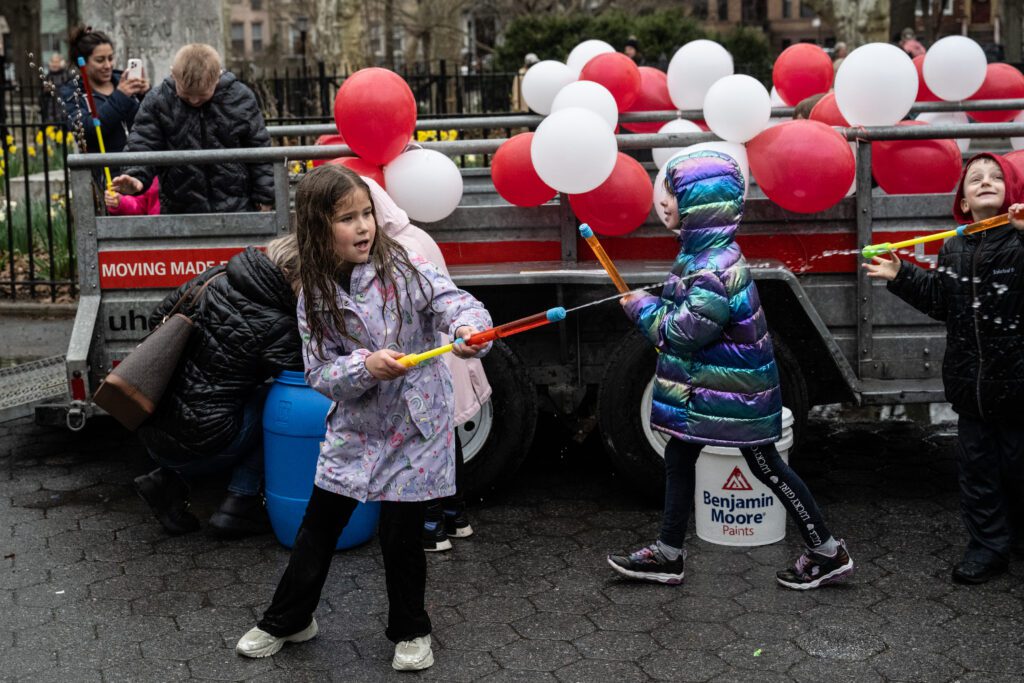

Not a dry eye in the park (Photo by Stephanie Keith)
You might also like 

















